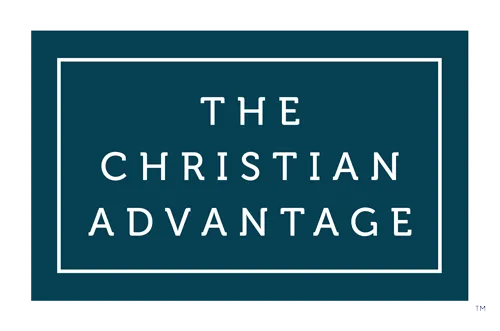Corporate Chaplaincy as a Christian Advantage for Businesses
As a business owner, you’re faced with a variety of daily needs involving the safety and welfare of your employees. A person’s mental state affects productivity, commitment and temperament at work. Employees facing crises at home often bring those difficulties to the office, which can cause job performance to suffer, as many don’t have anyone to talk to. Stress is a primary factor in the health and wellness of your workers.
As a Christian, it’s equally important your employees see you as someone who cares about them as a person and not just a number. In this article we’ll cover the basis of a corporate chaplaincy program, and how it addresses these issues.
Typical Solutions
Historically, Employee Assistance Programs (EAPs) have been used to address these concerns. Overall only about 5% of employees utilize EAPs because the worker is required to call an 800-number and take the initiative they may not have nor be willing to put forward in a stressful situation.
There are confidentiality issues needing to be considered in these scenarios. Some companies try to address these issues by implementing a drug policy, sponsor a marriage enrichment program or offering financial planning workshops. The core issue often is: employees need to know you care and many don’t have someone to talk to about their personal issues, which then accompany them to the workplace. When life falls apart for your workers and they don’t know what to do, how can you best serve them?
A Real Solution
Corporate chaplaincy programs are known to improve employee performance, lessen turnover and help the culture in your business reflect the love of Christ.
Corporate chaplaincy has a proven track record for someone to build relationships with your workforce, in non-threatening ways, to help them in all of life’s trials. And it is not limited to office hours. Implemented properly it includes a three-dimensional span of an employee’s life to include work, family and life.
This solution is often lower in cost, much more effective than Employee Assistance Programs and available to any industry. Coca-Cola Bottling Consolidated of Charlotte, N.C. gives testimony to improvements in productivity, safety, quality, profitability and employee satisfaction since implementing their chaplaincy program. Their employees told management that if necessary “they’d take less benefits in order to keep the chaplain program going.”
What is a Corporate Chaplaincy Program?
A corporate chaplain is a trained ministry professional, committed to confidentiality who visits your office/workplace on a regular schedule. It may be weekly, monthly, or bimonthly depending on the arrangements made with the company. Typically, this person walks through the offices or workplace, taking thirty seconds to three minutes to chat with employees to develop a relationship with those interested. During these visits the chaplain might set up a meeting with an employee outside of work to discuss specific issues in more detail. The chaplain is generally available to perform/attend funerals or weddings, visit employees (and their immediate family members) in the hospital, and refer counseling programs. Employees have permission to contact a chaplain 24/7 whenever a need arises. In some situations, the chaplain might lead a voluntary Bible study or prayer group on site.
The most important function of a corporate chaplain in the workplace is to make employees feel cared about and valued, outside of their work contributions at work. As the chaplain builds trusting relationships and rapport with employees, it often leads to ministry opportunities, though a corporate chaplain is not in the workplace to push religion. Chaplains only share the Gospel only with permission from the employee. The chaplain is committed to caring for everyone regardless of faith and when appropriate makes referrals to other religious leaders such as a Rabbi or Imam in the community.
Concerns
While lawsuits are a common issue in today’s culture, we believe this isn’t a problem if chaplains approach their job in accordance with their training. In the United States employers are allowed to offer faith-based services to employees as long as they do so without discrimination or creating an environment where employees feel pressured to align with a certain faith. In practice this means chaplains may be employed and Bible study sessions are allowed as long as they’re voluntary and there’s no discrimination against those who choose not to attend. In all situations employees must never feel like the conditions of their employment are in any way contingent on their religious beliefs.
According to Mark Cress from Corporate Chaplains of America, “during more than sixty years of workplace chaplaincy history, no company offering a Chaplain Assistance Program, nor any chaplain agency, has been the target of litigation concerning chaplain care.”
Corporate Chaplaincy Options
The easiest way to implement a corporate chaplaincy program is to contract with an outside organization. These firms screen and train their chaplains to insure they will be effective in the workplace. They handle confidentiality in their reporting and oversight of the chaplains. Marketplace Ministries and Corporate Chaplains of America are the largest in the U.S.
Hospitals and large companies (Tyson Food) often employ their own chaplains, similar to the military.
Sometimes you can find a self-employed chaplain in your area who provides chaplain services for several companies. An independent chaplain can service up to 600 employees on a monthly basis.
Another choice is to hire your own chaplain. Candidates include ministers looking for a part-time engagement to supplement their income and seminary students. Employees can serve in a dual role with the chaplain duties being part of their job description.
Some owners will self-perform chaplaincy duties. Some of the challenges in doing so include: issues with confidentiality, conflict of interest in the employee/employer relationship and the amount of time required when issues arise.
Costs
National firm fees can be as low as $12.50 per month per employee. A self-employed chaplain operating as a small business, will tend to be more flexible to tailor their services to match your budget.
Factors impacting cost include the number of employees, shifts, frequency of visits and additional services included. Typically chaplains are paid a flat fee per month.
Conclusion
I believe a corporate chaplaincy program is the most cost effective employee benefit you can provide your employees. It is a win-win for both the employee and the company. When crises arise, and they will, a chaplain can stabilize the situation and communicate you care with less cost than any other employee benefit.
Bruce Zoeller
The post Corporate Chaplaincy as a Christian Advantage appeared first on The Christian Advantage.

